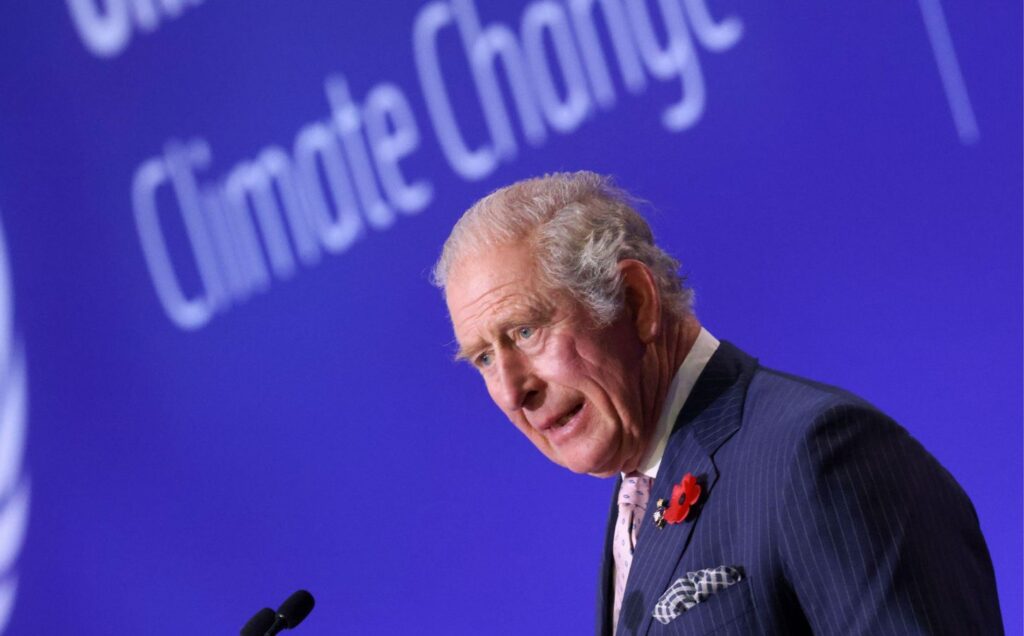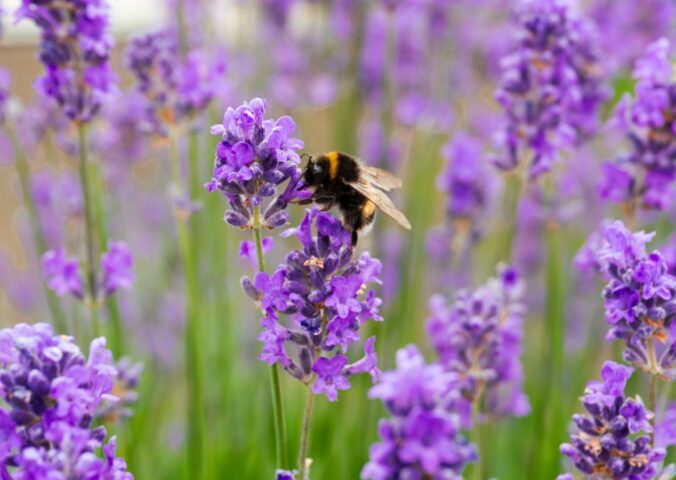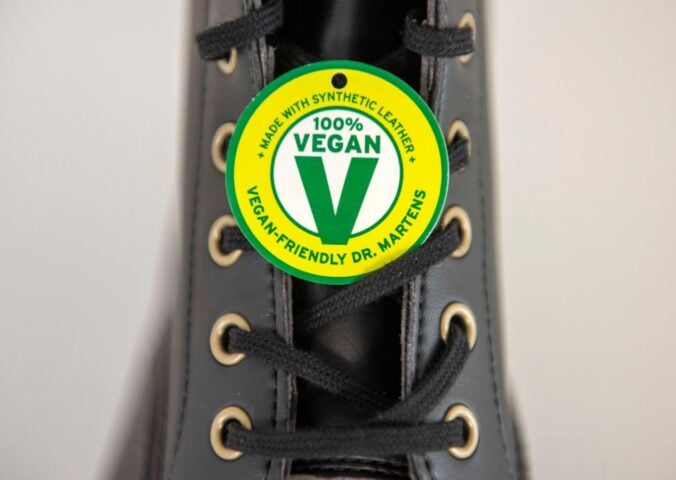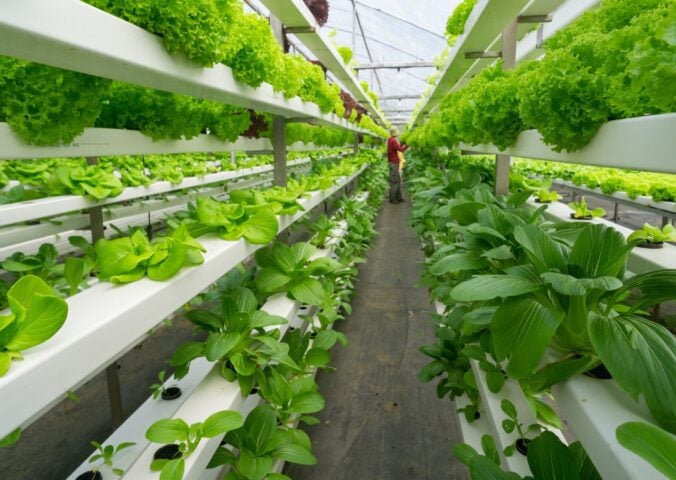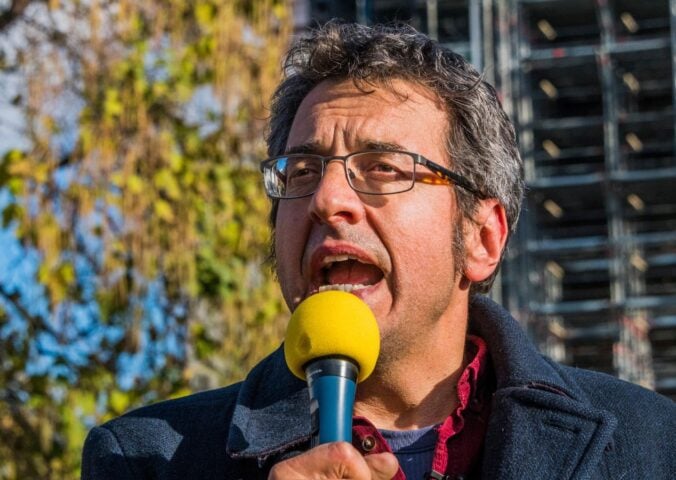After the death of Queen Elizabeth II last September, a man dubbed “the Climate King” ascended to the throne. King Charles III became the first British King in seven decades, and the 62nd monarch to serve in 1,200 years.
The UK public is generally in favor of the monarchy, with 62 percent voicing support for its continuation. But perhaps even the staunchest of republicans could console themselves with the fact that we have such a well-established “environmentalist” as king. In the midst of the worsening terrifying climate crisis, shouldn’t this news reassure us all?
The king is certainly a strong advocate for the planet. But he has for decades ignored the impact of one of the world’s most environmentally destructive industries: meat. So, do his efforts really go far enough? Here, we take a deep dive into the reigning monarch’s eco-credentials. This includes his attitude towards animal agriculture, and whether his actions really go above the bare minimum when it comes to the climate crisis.
The king’s eco-credentials
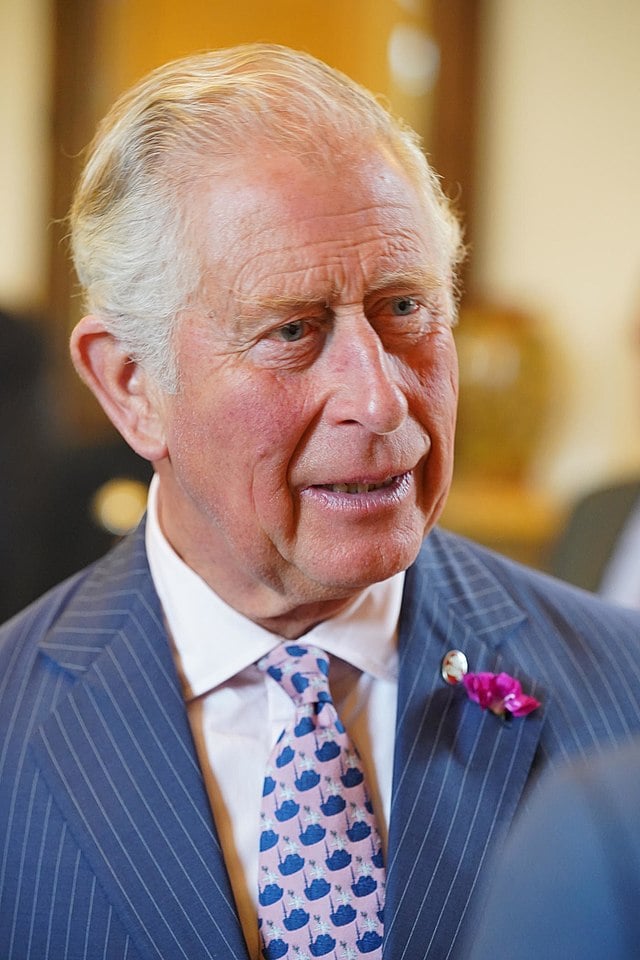
King Charles spent more than six decades as the Prince of Wales. During this time he certainly made a name for himself as an environmentalist. He gave his first speech on the issue in 1970, a time well before the climate crisis was a significant part of public discourse. Since then, he’s kept us all reminded of just how green he is.
After his ascent, the media flocked to fawn over his eco reputation. The Conversation and the Independent quoted him as “the most significant environmentalist in history.” News site WION questioned if he’d be as “green a king as he was a prince?”. Time even said his “long-term” environmentalism may test his relations with UK Prime Minister Liz Truss.
King Charles’ own website states that he’s taken “many steps personally to live in a more sustainable way.”
King Charles is regularly photographed engaging in PR-friendly activities like planting trees. He even has an organic farm that sells fruit to high-end supermarket Waitrose at his Highgrove residence.
Reducing environmental harm
Each year, he publishes his apparent annual carbon footprint. It reportedly amounted to 490 tons in March 2022.
According to his website, around half of his office and domestic energy use comes from renewable sources such as wood chip boilers, air-source heat pumps, solar panels, and “green” electricity.
He also apparently “strives” to “minimize” his environmental impact regarding travel and energy use, as well as the indirect impact of the products and services he uses.
King Charles even modified his 1970 Aston Martin to run partly on bioethanol made from surplus white wine and whey sourced from a cheesemaker.
He has also set out to raise awareness about environmental issues. He regularly gives talks on the climate crisis, and delivered a speech at last year’s COP26 summit. Further, the royal has heralded the importance of maintaining biodiversity, and discussed the huge problem of deforestation.
King Charles is right about global warming. He’s right about deforestation, and he’s right about biodiversity loss. He was also probably right to use his vast privilege to do some talks and give his priceless vintage car an eco-makeover.
The overall substance of his environmental credentials, however, is debatable.
Is King Charles missing something?
When King Charles warned that deforestation was central to climate breakdown ahead of the Paris Climate talks in 2015, he neglected to mention the key factor causing it. When he said we must “recognize the true value” of biodiversity, he appeared to forget the driving force of its destruction.
The king has mostly resisted mentioning a central component to all these environmental issues: what he, together with the majority of the population, puts on his dinner plate.
Animal agriculture is responsible for at least 14.5 percent of global greenhouse gas emissions.
This figure is disputed by some studies, with many experts predicting it’s much higher.
Cattle farming is responsible for a third of human-caused methane. This powerful greenhouse gas is 80 times more warming than CO2 in its first 20 years in the atmosphere. But it also has a much shorter half life. This means cutting it would slow global warming more quickly, therefore giving us more time to address carbon emissions. The United Nations (UN) recently said that cutting methane is the “strongest lever” we have to slow global heating.
Animal farming and deforestation
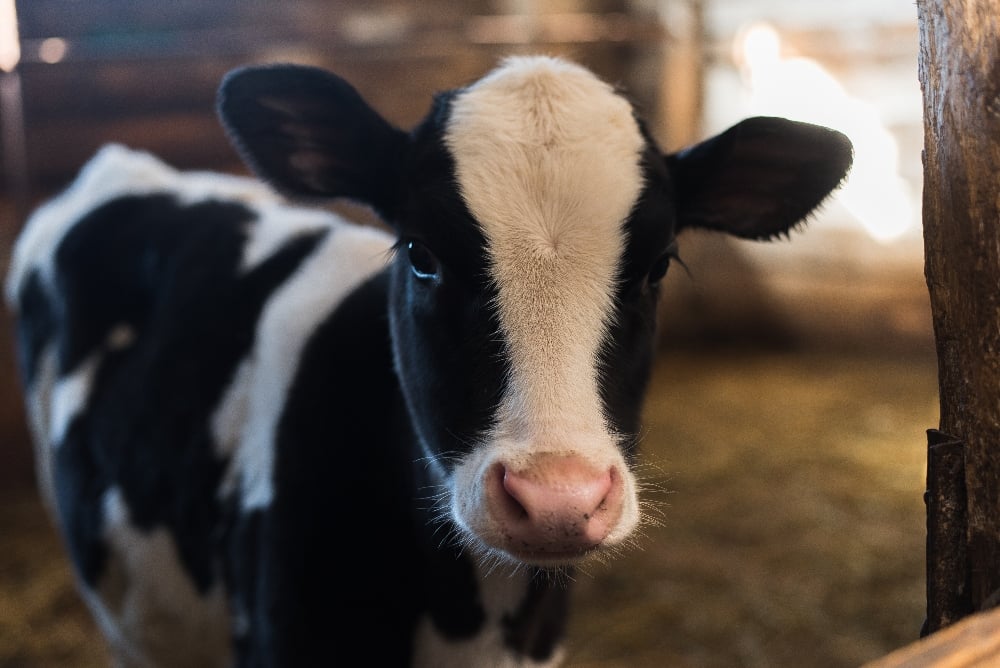
Cattle farming is also driving Amazon deforestation; vast quantities of trees are cut down and burned to make room for cows and their feed. It is thought that animal agriculture has caused around 91 percent of deforestation in the area.
A report from the UN last year found that animal agriculture is the “primary driver” of biodiversity loss. Researchers called for “urgent reform” of food systems, saying that this loss will continue until we change the way we produce food. They added that habitat and ecosystem destruction will threaten our ability to sustain human populations.
A study from the University of Oxford found that western countries must reduce their beef consumption by 90 percent to avoid climate collapse.
So, has the Climate King endorsed a swift and urgent move toward a plant-based food system?
King Charles and animal agriculture
In the past, King Charles has made a few sparse criticisms of animal agriculture.
One of the earliest of these was in 1985. In an interview with the late Princess Diana, he was asked whether he was a vegetarian. He responded: “I’m not a complete vegetarian, no, but I think I started to examine the things I ate slightly more carefully than I had done before.”
In his 2010 book Harmony: A New Way of Looking at Our World, he critiqued the “mechanistic thinking” of factory farming. He also slammed the “endless perverse” subsidies for industrial fishing and intensive animal agriculture in an interview last year.
Earlier this year, the monarch also said he met with physician, researcher, and president and founder of the nonprofit Preventive Medicine Research, Professor Dean Ornish. Professor Ornish is well-known for advocating for mostly plant-based diets to prevent and reverse heart disease.
But despite occasional critiques of livestock farming, King Charles doesn’t seem to be practicing what he preaches. In fact, it seems like the monarch is in denial about supporting any real, practical solutions for reducing emissions from animal agriculture.
King Charles endorses methane masks for cows
Earlier this year, the 73 year old was photographed admiring some horrifying animal methane masks. They were intended to be worn by cows in order to neutralize the methane they produce when they belch.
The masks were described as “innovative.” And the king (who, at the time, was still the Prince of Wales) awarded the creators a £50,000 prize from The Prince of Wales’ Charitable Fund for offering a “design solution to the climate crisis.”
Animals already suffer immensely on farms, and forcing them to wear masks would almost certainly add to their misery. But even putting animal welfare aside, these contraptions do little more than place the thinnest layer of tissue paper over the cracks of the climate crisis.
Even in the unlikely event that a significant proportion of farmers agreed to use these masks, huge quantities of trees and biodiversity would still be destroyed to give the cows somewhere to live. Deforested land would still be needed to grow their food. And they’d also need copious amounts of fresh water to drink.
The bare minimum
King Charles has taken some (very) small steps to reduce his intake of animal products. In October 2021, he revealed he was taking just two days a week off meat to save the planet, saying the “business of what we eat of course is important.” He also said he takes a measly one day a week away from dairy.
For a man with probably the best food resources in the world at his disposal, who could probably have a vegan banquet laid out by the finest chefs at all hours of the day at the click of a finger, this is a very, very, mediocre effort.
King Charles has previously advocated for grass-fed “quality” meat. And due to his wealth and status, this is very likely what he eats. But the notion that eating locally produced meat is environmentally sound has been rubbished by scientists.
A study from the University of Oxford found that grass-fed cows were “in no way a climate solution.” What’s more, its author Dr Tara Garnett highlighted that grass-fed cows may be worse for the environment than intensively farmed grain-fed cows. This is partly due to the fact they produce more greenhouse gases.
“Commercial feeds tend to be less fibrous than grass, and so cows that eat them produce less methane (through belching and flatulence),” she wrote. “Animals in more intensive, grain-fed systems also reach slaughter weight faster than grass-fed animals do, so emissions over the animal’s entire lifetime are lower.”
A climate king?
King Charles’ questionable climate credentials go further than his continued reliance on animal agriculture.
The royal family are regular users of private jets, which they have in the past taken on their excursions to raise awareness of the climate. Of course, it may not be feasible for them to travel by many other means. But that doesn’t negate the fact this travel adds substantially to their carbon footprint.

King Charles also caused a stir in 2010 after describing population growth in the Global South as a “monumental challenge” to climate breakdown. He cited the fact that the population in Lagos, Nigeria, had risen from 300,000 to 20 million during his lifetime.
This is a hugely problematic argument. Nigeria is responsible for just 1.01 percent of global emissions, a fraction of those produced by many western countries. What’s more, the African continent has shown to already be disproportionately suffering the effects of the climate emergency when compared to the industrialized countries which most cause it.
There is no doubt that King Charles has played a huge part in raising awareness about environmental issues. But this awareness has been limited and arguably lacking in substance.
Animal agriculture isn’t the only answer to the climate crisis. But any “environmentalist” who ignores it is giving a dangerously incomplete picture of the problem. Global beef consumption grew from 65 million metric tons in 2010 to 70.9 million in 2020. It’s been forecast to grow even more this year.
So, while King Charles was heralding cow face masks and issuing sobering warnings about deforestation and biodiversity, animal farming was growing – and the planet is still getting hotter.
—
If you purchase something through a link on our site, Plant Based News may earn a commission. This helps us to provide our free services to millions of people each week.
